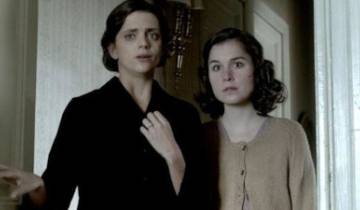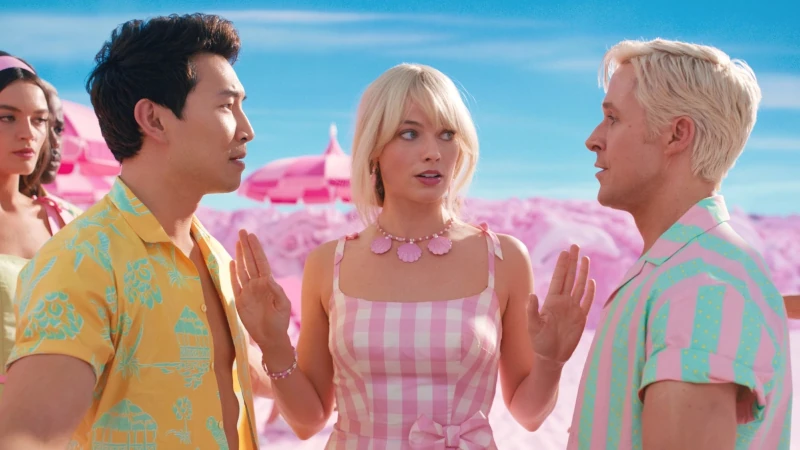
Genre cinema:
Post-pandemic movies for a new decade
Alexander Varderi
Beyond the pandemic, the beginning of the second decade of this millennium has brought a radicalization of ideologies and the siege of free thought and differences, censoring books, attacking those who deviate from traditional regulations and promoting laws to prohibit discussion of topics associated with otherness. Cinema, for its part, has responded to the resulting increase in racism, sexism, homophobia and xenophobia, producing films where such intolerances are denounced, or the fears of those who exercise social control are satirized.
“Firebird” (2021) by Peeter Rebane collects some of these reflections, returning to the Soviet air force during the Cold War, to tell the love relationship between a fighter pilot and a private soldier. Based on “The Story of Roman,” a memoir by Sergey Fetisov, the real event is romanticized on screen but does not lose its power to reveal the truth about the obstacles that both young people faced and ended up destroying their life together. Despite the decades that have passed, little has changed in the former Soviet Union, in view of the protests and attempts to ban the film when it was presented at the Moscow International Film Festival; hence its importance in a nation with a long history of violence against dissent.
Sergey (Tom Prior) and Roman (Oleg Zagorodnii) meet at a military base in occupied Estonia and begin seeing each other secretly, with the ballet “Firebird” by George Balanchine and Igor Stravinsky as a leitmotif in the background. Luisa (Diana Pozharskaya), secretary at the base and Sergey's confidant, falls in love with Roman, creating an emotional triangle that explodes when the young woman, once married to him, finds out the truth. This leads Roman to flee from everything in an indirect suicide when he asks to be transferred to Afghanistan, during the Soviet invasion and subsequent occupation of the country.
The cinematography privileged the intimate shot-against-shot games of Sergey and Roman with the large panoramic views of Haapsalu and Moscow to contrast the distance between the public and the private, while creating a complicity with the viewer as voyeur and witness of the machinations, subterfuges, threats and emotional blackmail that the lovers failed to overcome; although today's Estonia is much more inclusive despite Russian pressure. In the director's words: “We have come a long way in Estonia. Many of the countries of the former Soviet Union are against homosexuality, but Estonia was the first country in the bloc to enact an equal rights law for couples in 2013, when Russia announced its dire laws against 'homosexual propaganda' ”.
The period in which the film takes place, however, rejects such assessments, although homoeroticism is concentrated in aesthetics, winking at soap operas in the use of lighting, whose intensity of warm colors highlights the scenes of intimacy between the two. protagonists, and in the melodrama resulting from the classic triangle. The tendency towards melancholy and drinking within the Soviet imagination deepened the excess, especially in the sequence shots of the wedding between Roman and Luisa and the party in the apartment that Sergey and Roman shared in Moscow as a symbol of the pilot's double life. .
Another film where differences played a central role has been “Tár” (2022) by Todd Field. Cate Blanchett (Lydia Tár) made an extraordinary tour de force, in the role of a successful orchestra conductor, where a chain of events between the professional and the personal end up destroying her career. Married to the first violinist of the Berlin Philharmonic of which she is the star conductor, and with a daughter in common, Lydia begins to receive anonymous threats, persecution and harassment from women close to her. This, as revenge for having been used and then thrown aside, in a kind of #MeToo in reverse for being a lesbian woman and not a heterosexual man who was the perpetrator. The consequences of such actions lead him to lose her job, her prestige and her family, ending up self-exiled in Asia where she will direct the music for a series of video games that are very popular among young people.
The style between emotional minimalism and sensual Gothic, present in other Field films such as “In the Bedroom” (2001) and “Little Children” (2006), is refined here down to its smallest details, weaving a meticulous tapestry of understandings, emotional blackmail, confrontations, jealousy and clashes of egos, which give their rhythm to the diegesis and maintain the tension. The use of the subjective camera contributes to delving into Lydia's progressive interior and exterior isolation from the viewer's perspective, in order to confront it with the ambiguity of contemporary cultural discourses regarding gender politics, seen as a safeguard of other identities. or, as in this case, a threat towards them. Regarding this, Cate Blanchett says: “I have been very reticent to talk about the film. Partly because it is very ambiguous and difficult to define. (…) Not only is the character very enigmatic, but the events reflected in the plot are very imprecise. In a sense the film is like a Rorschach test, in terms of the types of judgments that people make based on information that is alluded to but never confirmed.
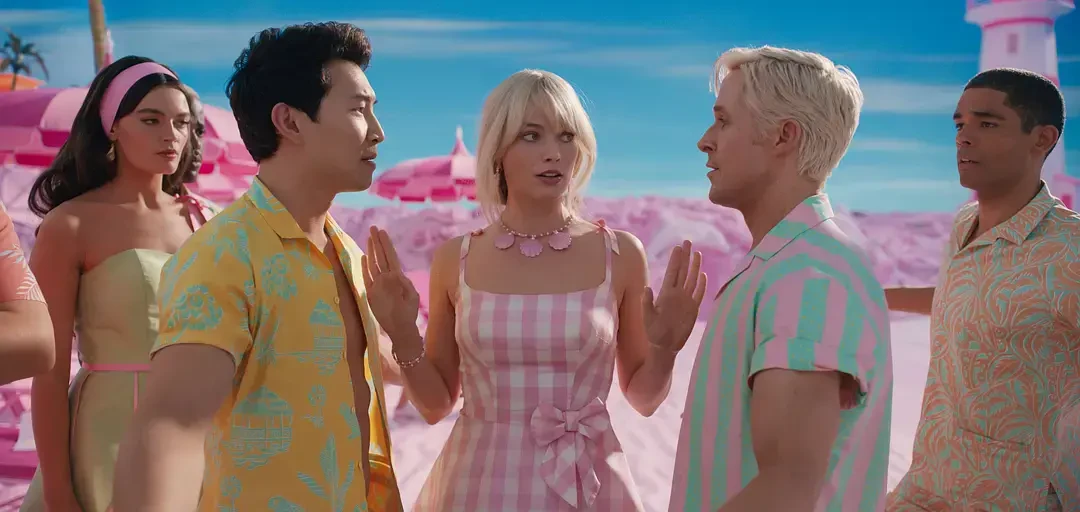
Enigma and misunderstanding also surrounded Rock Hudson's public life throughout his career, although those around him always knew about his homosexuality and protected him in the eyes of the public, to the point that his departure was a global shock. came out of the closet when he announced on television that he had contracted AIDS. Supported by Doris Day, with whom he filmed a series of blockbuster comedies in the sixties and visibly deteriorating, he became a powerful symbol of the fight against a virus, still incurable more than four decades after having been discovered, and which by then spread terror among the community.
“Rock Hudson: Hall That Heaven Allowed” (2023), a documentary by Stephen Kijak, returns to the actor's career through the anecdotes of those who knew him and in some cases shared a bed with him, weaving a narrative thread that intersects with fragments of his films, especially those where a gay subtext can be read when the scenes are isolated from the film context. Although this approach to the star is also present in two previous documentaries, “Rock Hudson's Home Movies” (1992) by Mark Rappaport and “The Celluloid Closet” (1996) by Rob Epstein and Jeffrey Friedman, here we have first-hand information about details as intimate as the size of his sexual organ, while at the same time exposing for today's viewer the intolerances of North American society at that time.
Behind the image of the female and secretly male idol, a Rock Hudson emerges, fascinated with the underground of the time, which he discreetly frequented, while he organized meetings at his house around the pool, where young people eager to get closer to the star participated. And although the studios for which he worked pressured him to change the course of his desires, even forcing him to marry, off the set he managed to lead a relatively free existence and without the guilt of other luminaries such as James Dean and Montgomery Clift. This is reflected in the documentary through home movie clips filmed at his home and at the homes of close friends, in which he appears happy and relaxed. Likewise, photographs with his partners on vacations and excursions to mountainous places, where they could enjoy their affection without being seen, even when he was in the public eye until the end. Perhaps the best thing about the documentary is precisely the documentation of the last period of his existence, when he became a pioneering voice of the pandemic and stipulated that a foundation for research on the virus would be established that would bear his name. The refusal of Nancy Reagan, a close friend since the Hollywood era and then First Lady, to provide help and support for her treatment and for disseminating the dangers of the virus to the public, is outlined in the correspondence between the two that finally comes to light. light in the documentary.
“I was always a person jealous of my privacy. “I never let the press photograph my house or let the public know what I really thought,” she wrote in his posthumously published autobiography. Something that this documentary reflects in the agile work of editing the material that manages to profile the man behind the myth, showing the most personal side of Rock Hudson, who enjoyed to the last consequences everything that heaven allowed him to obtain inside and outside the screen.
“Strange Way of Life” (2023), a short film by Pedro Almodóvar, subverts the western as a genre and from the genre, in the reunion between two cowboys who were lovers in their youth and who in adulthood stumble upon too many unanswered unknowns, whenever they want. Articulate a coherent speech about the ups and downs of your relationship. Filmed in the Tabernas desert (Almería), where Sergio Leone directed his western trilogy, the film also moves geographically from the orography associated with such films to the Almodovarian one, as a nod to the roots of the filmmaker who has delved into the returns to the past of its characters as soon as they return to the original town. Here such stories spur the emotional dissatisfactions of a present in which Jake (Ethan Hawke) has returned as sheriff to arrest Silva's son (Pedro Pascal) accused of killing a prostitute. Underlying the fight between the two for the boy's future is another more personal and profound battle, where they must admit the existence of an attraction that has not grown in intensity despite the time that has passed, and that in a certain way will decide the young man's destiny at the same time. who will seal his own.
The panoramic views of the landscape, whose influence allegorizes the rugged terrain through which the protagonists move, allude to the plains and mountains of “Brokeback Mountain” (2005) by Ang Lee, set to act as a backdrop in the love story between two cowboys equally trapped in an inescapable relationship but constrained by social rules and the lovers' intimate fears. “In a way, I feel that my film is a response to 'Brokeback Mountain',” says Pedro Almodóvar, who had written the script several years ago influenced by Lee's film, although he had not found the time to bring it to the screen. This is the filmmaker's second production in English after the short “The Human Voice” (2021) with Tilda Swinton, in which the absence of the lover also centers the diegesis. In “Strange Way of Life” this absence hovers over the imagination of the cowboys, because they know that there is no place for them in a world where speaking out openly can lead to death, as happened with one of the protagonists of “Brokeback Mountain.” “I feel much better after having made this movie,” Ethan Hawke also points out, endorsing the commitment of many Hollywood actors when playing roles capable of highlighting the struggles of those who do not fit within the pre-established molds and therefore must be punished.
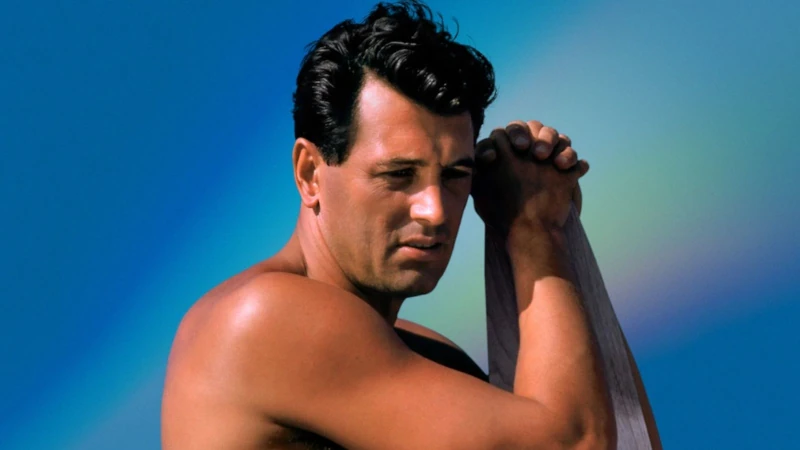
Two films that deviate from this reality and build another parallel in which the impossible becomes possible have been “Red, White and Royal Blue” (2023) by Matthew López and “Barbie” (2023) by Greta Gerwig. In both there is no guilt regarding what the characters are and represent because the environment is inclined to accept and celebrate them.
In López's film, not only the personal but also the political is transformed into a fairy tale, when Alex (Taylor Zakhar Pérez), son of the first female president of the United States, played with pleasure by Uma Thurman, falls in love with Henry (Nicholas Galitzine), brother of the future king of England. Based on the bestseller by Casey McQuiston, the film traces the sweetened style of the novel where a balance is sought between the inclusive and the exclusive, favoring an equally balanced mix between race and gender under the parameters of political correctness. The establishing shot that closes the film with Alex's mother, a Texan of humble extraction re-elected as president, his father proud to be the son of Mexican immigrants and him holding hands with Prince Henry like a happy interracial gay couple for this millennium, calms momentarily the anxieties of those who do not belong to the dominant heterosexual white group and are therefore rejected.
The equally sweetened cinematography and a camera that caresses with its pans and chopped shots the perfect bodies of Álex and Henry complete the fantasy, validating the differences and the different, in an era where intolerance keeps them under harassment. In the direction of playwright Matthew López, who makes his debut here as a filmmaker, the imagery around the struggles to challenge prejudices and openly manifest the direction of desire, developed in his award-winning play “The Inheritance” (2018), leaves the ghetto and comes to light from the flashes of mobile phones with its wide range of social networks, constituting a language parallel to the hyperreality of the film. This brings to the fore the importance of new languages to put pressure on the status quo, in the battle for recognition on par with that of historically accepted groups, and impose a new normality much more in line with contemporary cultural interests and developments.
“I'm sure that if I had had access to a character like Álex when I was a teenager, my life would have been much easier,” declares the director, reiterating the need to promote multisexual and multicultural models in Hollywood, especially when the competition from Virtual platforms are taking over the market. In fact, the production of “Red, White and Royal Blue” is from Amazon Prime, which reaffirms the reluctance of traditional studios to support this type of projects.
For its part, “Barbie” is a Warner Bros. production and has the powerful support of its machinery. In fact, it is the film that has ever produced the most money for this studio, being one of the highest grossing of all time. This, given the iconic importance of the doll in the collective imagination as a toy, but also as a repository of the most hidden fears, as observed in the Todd Haynes documentary “Superstar: The Karen Carpenter Story” (1988), where the An existence marked by anorexia that led to the singer's death is represented using Barbies instead of actors.
Greta Gerwig's film reverses the equation. Margot Robbie (Barbie) and Ryan Gosling (Kent) are flesh and blood dolls living happily in a world where everything is presented in pastel colors until they have to move to the real thing; although they remain at the corporate level where economic affluence continues to isolate them from authentic reality. Wide angles on Venice Beach and the glass-enclosed Mattel skyscraper, sequences of chases in luxurious cars through the avenues of Los Angeles, scenes in a residential area school, are compared with their simulation in Barbie's toy kingdom. In any case, it will be in ours where the dolls will find answers to their questions. An infinitely more dysfunctional realm, in which the games include war, ecosystem destruction, mass migrations and, yes, the subjection of women and racial and sexual otherness to patriarchal power; a power eagerly embraced by Kent in the different versions of him, when he realizes that he has been subject to Barbie's dominance for more than six decades, at the same time that she will be faced with the sexism prevailing in this contemporary era.
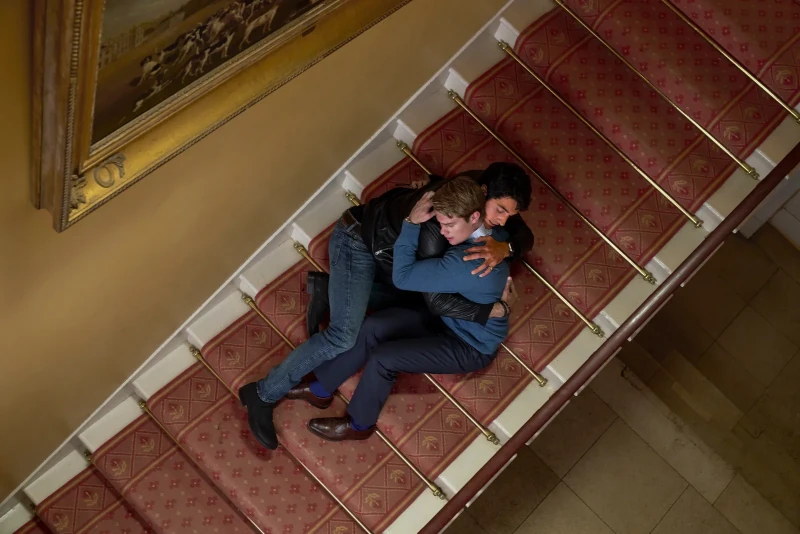
The musical numbers mirrored films of the genre such as “Top Hat” (1935) by Mark Sandrich, “An American in Paris” (1951) by Vicente Minnelli and “Les Demoiselles de Rocheford” (1967) by Jacques Demy; as well as its reinterpretation in “La, La Land” (2016) by Damien Chazelle where Gosling had a starring role. In this sense, the sequences of the Kents dancing with each other holding hands, facing off in a beach war dressed in rainbows and throwing pink plastic arrows at each other. or singing by the light of a bonfire on the beach with their colorful guitars more in love with their look than with the Barbies around them, they point towards narcissism and sexual ambiguity leading to the banning of the film in numerous countries in Asia and the Arab world, for “promoting homosexuality and other Western deviations” and “minimizing the importance of the family unit.”
An outburst certainly, especially with regard to the latter since the director's filmography includes such iconic films as the seventh version of “Little Women” (2019) and “Lady Bird” (2017), in addition to reaffirming with “Barbie ” the mother-daughter bond and her transition to adulthood. According to Gerwig: “The pain of contradictions, of not being able to fully close that gap between adulthood and childhood, is also present in the film. It's this overflowing feeling of joy, and then saying to yourself: 'I'll never be able to go back there.'” A certainty as current as the celebration of differences—Doctor Barbie is played by a transgender actress—that this and the other films have addressed as a reaction to a time full of injustices and uncertainties, but in struggle against those who seek to impose their narrow vision of reality.
